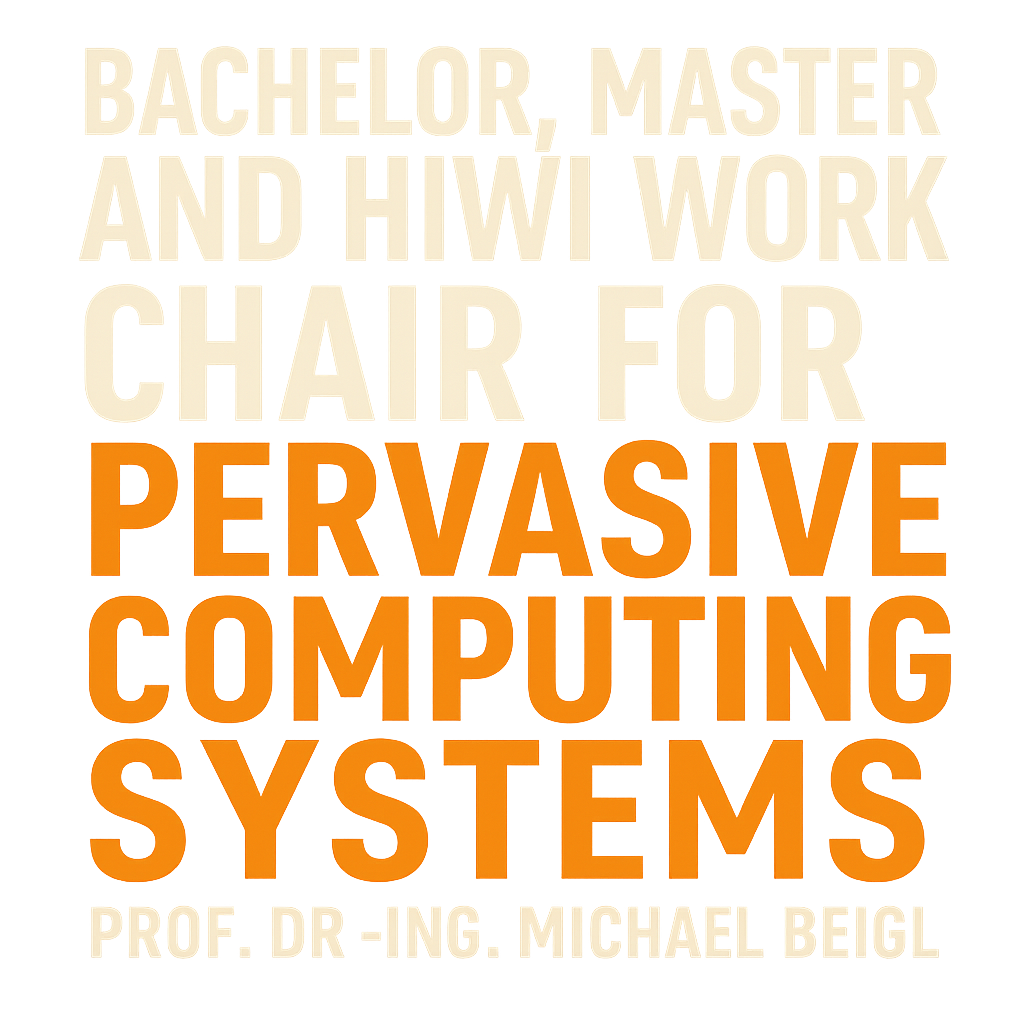
We are the Chair of Pervasive Computing Systems and the long-standing research department TECO at KIT. We are the ones who invented the web browser on the smartphone, created the first digital objects, and built the first European sensor network. We are an expert team with excellent international connections, happy to send good students abroad. We have excellent contacts in the industry, are located in the SAP Research Center, and have an interdisciplinary focus.
You are looking for an exceptional Bachelor’s or Master’s thesis, in a very inspiring environment, and want to collaborate with internationally recognized top scientists from research and industry. You are highly motivated and want to contribute your own ideas. You are very gifted practically or theoretically, or both. You are interested in helping build a new chair. You work independently but enjoy being part of a team. You are interested in working with the latest technology.
An overview of all offered courses can be found on the official page of the chair.
There you will find, among other things, a list of all courses offered this semester. Materials for specific lectures can also be found directly here: Mobile Computing, Ubiquitous Computing and HCI.
Please note that for external theses, a project contact from the chair to the company must exist to ensure academic quality. Due to high demand, external theses are only supervised if the topic is issued by a staff member of the chair. Topics issued by the industry side are no longer supervised. As a rule, the work requires the company supervisor to be present at meetings at TECO. Please ask your contact person at the company first. Please consider that it is statistically likely that the creation of the thesis will be driven less by a scientific question and more by the company's economic interests. However, your grade will be based solely on the scientific content of your work.
Please note that you are responsible for the correct execution of your thesis. If you are in your 7th or even 8th Master's semester, you will need an extension. You must arrange for this yourself. Your thesis should be registered in a timely manner. You must communicate to your supervisor when you plan to start the work. Registration cannot be done just before submission. Your thesis submission must be complete. You are responsible for this, not your supervisor. Only what has been submitted can be included in the evaluation of the thesis.
Find the right topic for your Bachelor's or Master's thesis.
You can also apply for another thesis in these topics.